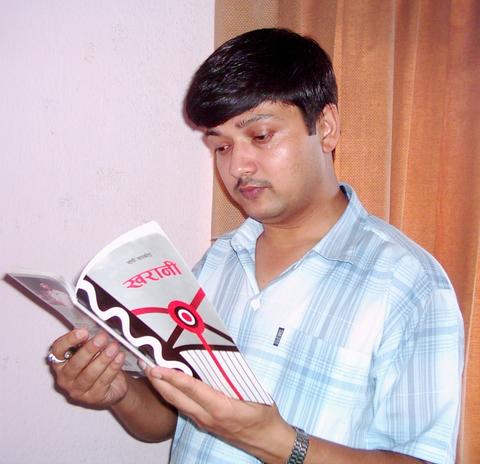
Samba Dhakal, one of the promising poets of Nepal, recently brought out his collection of poems ‘Tamasotsav’. ‘Tamasotsav’ is his second book, as his ‘Mancheharu Ajangako Yatrama’ was published few years back. This collection includes 101 poems written in nepali in last five years. Most of his poems deal with the present realities and absurdities resulted from Nepalese politics. In additional, his frustrations and wish for betterment are some other areas presented in his poems.
In Aru Andyaro Nahaeru Ki (Don’t want to see more darkness), his wish for light has been reflected. Basically, after undergoing the age of darkness, people are afraid to walk in the same situation. The poet puts the question posed to him ‘how long can you walk in the darkness?’ which is still unanswered to most of us, but the poet says he will proceed only after the light appears.
In Apradhbodh (Regret), Samba regrets that the purpose of composing poetry for him was not fulfilled. He wished to have changed the life of poor people, but it failed to do so. Poems are not directly helpful to support the people, but they have been playing the role to transmit ideas to them, which Samba is aware of, though he confesses.
According to Critic Madhav Kafle, Samba is a humanitarian poet, as he is advocating human values in each facets of his writing. Rasa, the poet and critic writes that Samba stands a critical observer, though he looks like more radical while criticising the unfavourable realities. Reading Samba’s poems was a sort of mental exercise to understand the complexity of complex life.






